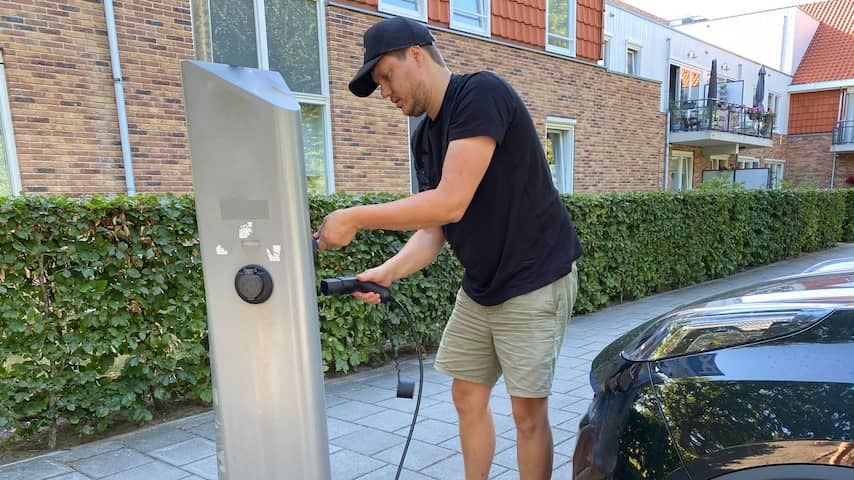
Second-hand electric cars have become an average of 30 percent cheaper since 2023. But mobility economists see that as a ‘correction’, because electric driving has become more expensive as the government largely closed the subsidy tap this year.
Economists from ING and ABN AMRO confirm that prices for used electric cars (EVs) have been falling for some time. Car sales site Looping reports from its own research that the average selling price of a fully electric used car at the beginning of this year was 18,427 euros. That is 8,800 euros cheaper than the average price in 2023. Used fuel cars are also becoming cheaper, but those prices are falling much less rapidly.
That electric cars are becoming cheaper has several causes. “For example, the supply of used cars is increasing, because lease contracts for these electric cars from 2019 are now expiring,” says Looping spokesperson Sefa Sarioglu.
“Manufacturers have also made their EVs more affordable in recent years with cheaper battery technology and are accepting lower margins to compete with Chinese brands.”
‘Not all used electric cars are still interesting’
The corona years are still echoing in the car industry, says Erik Slaaf, sector specialist mobility for ING. “After the lockdowns, in which car sales stalled, everyone suddenly wanted to buy a new car again. The sector could not handle that well, because manufacturers had reduced production. So prices for new and used cars rose quickly. Meanwhile, more cars are being made again and prices are falling again, both for new and used cars.”
There is now more supply of used electric cars than demand from Dutch drivers. Henk Hofstede, retail economist and mobility specialist at ABN AMRO, also sees the used prices of EVs falling because some models are already becoming outdated. “The technology is going so fast that models from five years ago are already much less interesting for people who want to buy an electric car.”
“Take, for example, the Audi e-tron from 2019. It could drive about 250 kilometers without charging,” says Hofstede. “Who wants that?” Newer electric cars can sometimes drive more than 500 kilometers.
No more 2,000 euro purchase subsidy since this year
Because the electric used cars are not easily sold in the Netherlands, according to Hofstede, large numbers are brought to Sweden or Norway. There, drivers receive more tax benefits and subsidies. That is the third and perhaps most important reason why electric cars are discounted in the Netherlands: the government hardly pays anymore.
The purchase subsidy for electric cars (SEPP) stopped this year. In 2024 you could still apply for 2,000 euros subsidy for a used EV. That pot is gone.
And in use, electric cars are also becoming less advantageous. For example, electric drivers have to pay road tax since this year. That is now a quarter of the normal rate, but from 2026 it will quickly rise to 70 percent. The tax is also calculated on weight. And an electric car can weigh up to 500 kilos more than a petrol car of the same size due to its heavy battery pack.
Is an electric second-hand car still attractive? “You have to make that calculation before you buy an electric used car,” says Slaaf. Electric used cars are still thousands of euros more expensive than a second-hand petrol car on average. That difference is getting smaller, but will remain for the time being. With road tax, the EV becomes more expensive per kilometer and that will increase in the coming years.
Charging is still cheaper than refueling
A full tank of petrol is still considerably more expensive than a full battery charge. Slaaf advises households with solar panels to also invest in their own charging station. “Then you can charge for free on a sunny afternoon with your own panels.”
The mobility economist realizes that not every second-hand car buyer can make that investment. “Actually, there is now no incentive (from the government, ed.) to buy a second-hand electric car.”
Slaaf hopes for a new subsidy scheme for used EVs. Hofstede would also “think that would be good for the Dutch energy transition”. After all, from 2030 no new passenger cars with combustion engines may be sold anymore. And from 2035 that applies to all EU countries. The electric car is then as good as mandatory, but then used car drivers – the largest target group – must also be able to afford it.